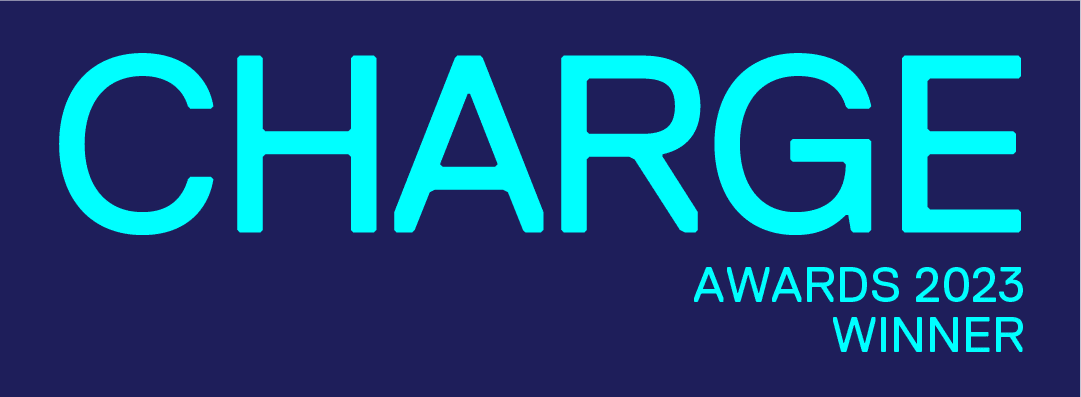Derek Lim Soo, father of 3 and CEO and co-founder of Peak Power, sat down with Elaine Kwok, non-parent and Director of Marketing. They chatted about starting a family and a new business all at the same time.
I’ve heard lots of people compare starting a business to having a child. You’re a father of three, and you started a business. Where does that comparison work? Where does it fall short?
There are a lot of similarities between raising children and building a company, especially in the beginning. You aren’t a good parent to start. You aren’t a good CEO to start. You can learn to be better at both, but it requires work, and it requires you to look in the mirror in a big way and self-reflect. Both require a lot of work up front and then you must change your role as each matures.
Raising children and running a business both require patience, nurturing, and compassion. You have to accept things you can’t control. You just can’t expect things to happen overnight. For example, as your kid is learning to read, you’re told, “Don’t worry, they’ll connect the dots. That just takes time.” My daughter took a little longer to learn to read, and then she connected the dots and reads like a beast now. Patience and the notion of just accepting things that are outside your control are probably two things I’ve learned from parenting that I translated to the work world. And I’m still trying every day.
I think that a common mistake that most entrepreneurs make is they look at their company as if it’s another child. But your kids, they’re your blood. They’re like an extension of you. The company changes and evolves beyond the founder and beyond the CEO. The reality is, things you wouldn’t do with family, you would do with your business.
What’s life as a CEO with kids like?
I have 3 kids. My life is really, really busy. Especially with the re-emergence of travel. All weekend I was busy with family stuff. We got home at 9pm on Sunday, I packed my bags, and was on a flight at 6:45am. I flew to New York and had big meetings all day. I called my kids in between meetings. The next morning, I was in more meetings, then on a train to Boston after dinner. And then on a 6am flight this morning to make it to more meetings before finally getting a chance to spend some time with the kids. Tomorrow I’m off to Montreal for more meetings. It’s hectic.
Now that I’m travelling more, I need to be cognizant of it because there’s a consequence. Your kids see that you’re gone and they think it’s acceptable.
The previous generation, a lot of dads were kind of hands-off. They weren’t in it every day. Is this generation different?
So, my dad wasn’t. My dad would carry me around, play basketball with me, stuff like that. But once we reached a certain age, both my parents stopped being so engaged. They didn’t evolve or adapt. You see those parents now are listening to rap music with their kids, right? Because they evolved to be relevant to their kids.
One thing that’s important for me is I want to make sure my kids know that I’m there. Early on in the company, when people would ask my baby daughter, “where’s dad?” and she’d say, “office.” She knew that word. That hurt and it’s because that’s where I was on the weekends. I was working every day and night.
You need to be around because when kids want to talk to you, it’s on their terms. It’s not like a meeting you can schedule. Kids will crawl into your bed and say, “Something happened at school today.” If you’re in California for work, you’ll miss those conversations.
What COVID did was bring me back into the house. The big difference – going back to the difference between kids and work – is you can’t make up for lost time with kids. But you can make up for lost time with the company. You just can’t recover with kids. They’ll remember and it will change their life forever. With your company you can always delegate to people. You can’t delegate parenting. If you delegate to your spouse, there’s a cost to that.
How do you split up responsibilities between you and your wife?
Right now, my wife takes a bigger role. But we’re moving to this hybrid schedule. I’ll work from home and do pickups. We’re also going to get a full-time nanny to create some sanity. When you’re both career-oriented and you want to have a big family, it requires you to outsource things. It’s not for everybody, but if you both have a career, that requires you to sacrifice somewhere.
At the same time, you can’t outsource parenting. I don’t care who the best nanny is, that’s not what parenting is. You’re supposed to be there for your kids.
Right, you can outsource childcare, but you can’t outsource parenting. How are you managing this balance now? Are you able to disconnect from work once you get home?
I figured out a way to separate the two and put a boundary between work and family. I think this is super healthy. It’ll make me a better CEO. And it will only make for a better product.
You need to be sure you’re present 100% in each space. When you’re working you have to focus on work and be myopic. When you’re at home you’ve got to focus on just family. I did a bad job earlier and just melded them together, it was unhealthy. They’re very separate mindsets.
The time you invest in your kids will always create positive outcomes. If you put too much time into your company, it’s usually bad because it disconnects you from everything else. And it causes disempowerment in the business.
Now I shut my phone down and ignore calls during family time.
Sometimes when I’m trying to text you it says Derek has notifications off and I think “Good!”
Most of the time I put it on Do Not Disturb. Because if someone really needs to get ahold of me, I can deal with it later.
Some advice I received about work was you don’t need to react to everything so urgently. Everything can wait. It was a very good piece of advice on how to keep my head clear. Nothing is actually burning as much as you think. I don’t think it’s the same thing with family. With family there is an urgency to react, like when your kid is crying.
Now I have a better disconnect. At the beginning, my life being a father and my life with my company were the same. It’s only changed recently. I think everyone on the staff realizes that, too. I don’t text people after work hours as much. I’m much more empathetic. Everyone’s got a family, and I think that’s the most important thing. Business comes and goes, family doesn’t.
This Father’s Day will be the second one since my dad’s passing. So, I’ll be thinking about that and my family, but I won’t think about the company on Sunday. It won’t even cross my mind.
The company is not my child. It’s a labour of love for sure. It’s a creation. But it’s not a child. I can always step away from being a CEO. I can never step away from being a dad.
How are you enjoying fatherhood?
Not everybody really wants to be a dad. That’s the truth, and some people just play the role where they need to have a partner and a family, and that’s what completes their life – it’s a checklist. For me, I’ve always wanted to be a dad and I genuinely like it.
You know what fatherhood changed most about me? Besides the dad bod! I’ve grown up. I matured into an adult. When you have someone to take care of, that changes your perspective on things. It makes you more patient and more compassionate.
I grew up within Peak Power. I grew up because I had a family, because I have employees with their own families. That’s a cool journey, and it’ll evolve. You know, my kids will get older, the company will change, and my role will change.
I think that’s where some people get in trouble – if you want to be one type of CEO, one type of dad, it doesn’t work. Your kids are evolving, your employees are evolving, the markets are evolving. So there needs to be continuous improvement in all aspects of life.





